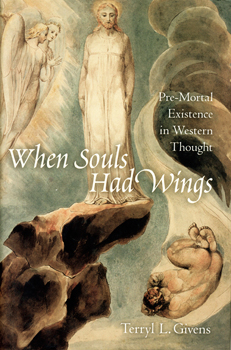
Certainty is a term that frequently appears in the ministry of Joseph Smith, often in a doctrinally prominent position. In the “Lectures on Faith” he delivered to the elders in Kirtland, he claimed that from earliest times, faith has been a prelude to sure knowledge: “the inquiry and diligent search of the ancient saints to seek after and obtain a knowledge of the glory of God . . . [was rooted in] the credence they gave to the testimony of their fathers. . . . The inquiry frequently terminated, indeed always terminated when rightly pursued, in the most glorious discoveries and eternal certainty.”[i]
Of his own case, he wrote to his wife, “Forasmuch as I know for a certainty of eternal things, if the heavens linger, it is nothing to me.”[ii] It is easy to see why his personal encounter with a conversing deity would ground his own sense of epistemological certainty. But he clearly saw his own experience as a prototype others could—and should—aspire to.
An 1833 revelation had the Lord declaring that “every soul who forsaketh his sins and cometh unto me, and calleth on my name, and obeyeth my voice, and keepeth my commandments, shall see my face, and know that I am” (D&C 93:1). This possibility Joseph related to the doctrine of the Second Comforter, spoken of by Christ when he addressed his disciples before his crucifixion. On that occasion, he promised that the Father would send them “another Comforter, that he may abide with you for ever” (John 14:16). “When any man obtains this last Comforter,” Joseph wrote, “the visions of the heavens will be opened unto him, and the Lord will teach him face to face, and he may have a perfect knowledge of the mysteries of the Kingdom of God.”[iii]
Joseph apparently believed that the personal epiphany he experienced in his visitation by the Father and the Son, heralding full immersion in the divine light, with all its epistemological fulness and certainty, betokened an order of knowledge that was the right and destiny of all faithful saints. That very real possibility informs Mormon life, worship, personal aspirations, and shared purpose. To attend any LDS testimony meeting, for example, is to enter into a rhetorical universe in which a language of calm assurance and confident conviction, even professions of certain knowledge, overwhelm the more traditional Christian expressions of common belief. It may well be that this sense of shared knowledge, its possession or pursuit, is an even more potent community builder than shared faith.
At the same time, of course, such rhetoric can have its drawbacks. It can convey a sense of smugness or superiority; it can create the tragic impression that with certainty there is no room or need for searching. And it can create discomfort and alienation on the part of those who do not or cannot share in expressions of serene, unconflicted conviction. And so it is at this point that I want to conclude with a few observations about what happens in the absence of such certainty. Whether faith is a way station on the way to certainty, as it seems to be in Alma’s sermon, or the place one’s spiritual journey takes one to, it is important that one understand the incalculable significance of faith—of this deliberate gesture of belief—as a defining moral gesture.
It is true that some people seem born with faith. And many people die with a full complement. My own grandmother spent her last months pining for death because she was the last of her generation, she “missed her people” to an excruciating degree, and she grew more and more disconnected from a world she saw as simply irrelevant, without the power to interest or lay hold upon her. It was striking to watch the world and persons beyond the grave assume, in her mind and in her conversation, a fully fleshed out texture and presence that utterly displaced the inhabitants of the here and now. Faith did not seem a choice for her. It descended upon her as naturally and irresistibly and encompassingly as the heavy snowfalls on her upstate New York farm.
But such a gift I have not found to be common. And it would seem that among those who vigorously pursue the life of the mind in particular, who are committed to the scholarly pursuit of knowledge and rational inquiry, faith is as often a casualty as it is a product. The call to faith is a summons to engage the heart, to attune it to resonate in sympathy with principles and values and ideals that we devoutly hope are true, and have reasonable but not certain grounds for believing to be true.
I am convinced that there must be grounds for doubt as well as belief, in order to render the choice more truly a choice, and therefore the more deliberate, and laden with personal vulnerability and investment. The option to believe must appear on one’s personal horizon like the fruit of paradise, perched precariously between sets of demands held in dynamic tension. One is, it would seem, always provided with sufficient materials out of which to fashion a life of credible conviction or dismissive denial. We are acted upon, in other words, by appeals to our personal values, our yearnings, our fears, our appetites and our ego. What we choose to embrace, to be responsive to, is the purest reflection of who we are and what we love. That is why faith, the choice to believe, is in the final analysis an action that is positively laden with moral significance. Because I believe that we are, as reflective, thinking, pondering seekers, much like the proverbial ass of Buridan. If you remember, the beast starves to death, because he is faced with two equally desirable and equally accessible piles of hay. Having no determinative reason to choose one over the other, he perishes in indecision.
In the case of us mortals, men and women are confronted with a world in which there are appealing arguments for God as a childish projection, for modern prophets as scheming or deluded imposters, and for modern scriptures as so much fabulous fiction. But there is also compelling evidence that a glorious divinity presides over the cosmos, that God calls and anoints prophets, and that his word and will are made manifest through a sacred canon that is never definitively closed. There is, as with the Ass of Buridan, nothing to compel an individual’s preference for one over the other. Only in the case of us mortals, there is something to tip the scale. There is something, to predispose us to a life of faith or a life of unbelief. There is a heart, that in these conditions of equilibrium and balance, and only in these conditions of equilibrium and balance, equally “enticed by the one or the other,” is truly free to choose belief or cynicism, faith or faithlessness.
Why, then, is there more merit that obtains—given this perfect balance—in believing in the Christ (and his gospel and prophets) than believing in a false deity, or in nothing at all? Perhaps because there is nothing in the universe, or in any possible universe, more perfectly good, absolutely beautiful, worthy of adoration, and worthy of emulation, than this Christ.
And a gesture of belief in that direction, a will manifesting itself as a desire to acknowledge his virtues as the paramount qualities of a divided universe, is a response to the best in us, the best and noblest of which the human soul is capable. For we do indeed create gods after our own image—or potential image. And that is an activity endowed with incalculable moral significance.
Terryl Givens, Professor of Literature and Religion at the University of Richmond, is the author of When Souls had Wings: Premortal Life in Western Thought and several books on Mormon history and culture.
[i] N.B. Lundwall, comp., Lectures on Faith (Salt Lake City: Bookcraft, nd), 23. Joseph’s actual authorship of the Lectures has become increasingly doubtful; what is not doubtful is that they were, at the least, authorized by him and a reflection of his theological views.
[ii] Dean C. Jessee, comp. and ed., The Personal Writings of Joseph Smith (Salt Lake City: Deseret, 1984), 408.
[iii] Joseph Smith, Jr., History of the Church of Jesus Christ of Latter-day Saints, 7 vols., eds. James Mulholland, Robert B. Thompson, William W. Phelps, Willard Richards, George A. Smith and later, B. H. Roberts (Salt Lake City: Deseret News Press, 1902-12; 2nd revised edition, Salt Lake City: Deseret Book, 1951), 3:381.


















